Imani Lee Williams up for challenge of elite Asolo actor training program
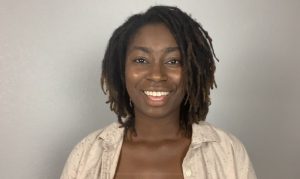 Imani Lee Williams loves a challenge. Good thing, because she’s going to be challenged incessantly for the next three years at the FSU/Asolo Conservatory for Actor Training. She’s part of the incoming class. The class of 2023.
Imani Lee Williams loves a challenge. Good thing, because she’s going to be challenged incessantly for the next three years at the FSU/Asolo Conservatory for Actor Training. She’s part of the incoming class. The class of 2023.
Williams learned this past Thursday that she is one of 13 students accepted into the elite three-year graduate program which 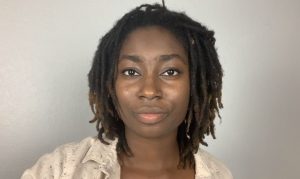 culminates in a Master of Fine Arts degree. In 2012, the program was named one of the top 25 drama schools in the world by The Hollywood Reporter (and #18 in 2019). At last listing, it was ranked 6th among MFA acting programs in the United States by U.S. News & World Report.
culminates in a Master of Fine Arts degree. In 2012, the program was named one of the top 25 drama schools in the world by The Hollywood Reporter (and #18 in 2019). At last listing, it was ranked 6th among MFA acting programs in the United States by U.S. News & World Report.
Only twelve 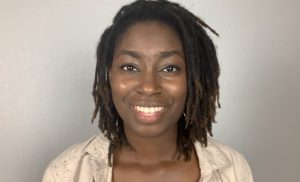 students are chosen most years from the more than a thousand candidates who audition nationwide. The program was initiated by the Florida State University School of Theatre in Tallahassee in 1968 and moved to Sarasota five years later to establish a permanent relationship with the Asolo Repertory Theatre.
students are chosen most years from the more than a thousand candidates who audition nationwide. The program was initiated by the Florida State University School of Theatre in Tallahassee in 1968 and moved to Sarasota five years later to establish a permanent relationship with the Asolo Repertory Theatre.
Imani has 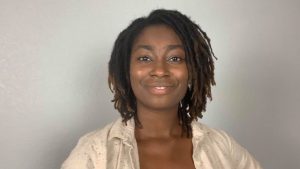 been challenging herself to become a better and better actor since elementary school. In 8th grade, she joined YEA (Youth Ensemble Atlanta), the South’s premiere African-American youth theatre company. Comprised of more than 70 aspiring young actors ages 8 to 24, the members of this dedicated ensemble are inspired through
been challenging herself to become a better and better actor since elementary school. In 8th grade, she joined YEA (Youth Ensemble Atlanta), the South’s premiere African-American youth theatre company. Comprised of more than 70 aspiring young actors ages 8 to 24, the members of this dedicated ensemble are inspired through 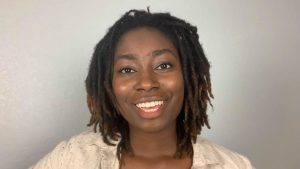 the performing arts to explore and express their feelings and concerns for the world within and around them. Utilizing the power of the arts, YEA has fostered the personal growth of hundreds of young people from childhood to adulthood. Along the way, these talented and dedicated performers have developed crucial communication and life skills
the performing arts to explore and express their feelings and concerns for the world within and around them. Utilizing the power of the arts, YEA has fostered the personal growth of hundreds of young people from childhood to adulthood. Along the way, these talented and dedicated performers have developed crucial communication and life skills 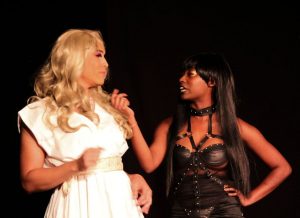 that have resulted in heightened cultural awareness, a commitment to excellence and community service, and an appreciation for diversity.
that have resulted in heightened cultural awareness, a commitment to excellence and community service, and an appreciation for diversity.
“I was a part of YEA five years, 8th grade through high school,” Imani relates. “That’s where I really learned discipline and connection to my roots as an African American. It was an amazing experience. 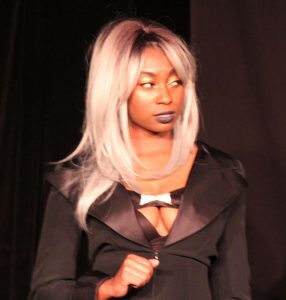 I got to challenge myself. I got to meet and work with other young people. They expected the best of us and that’s what they got.”
I got to challenge myself. I got to meet and work with other young people. They expected the best of us and that’s what they got.”
Imani performed in 12 touring musicals during her tenure at YEA as a member of its HAMWAM (Hot and Awesome Music with a Message) music production program. That’s a side of her that few Southwest Florida theater-goers have seen – they know her primarily through her work in Vampire Lesbians of Sodom, The Crucible and The Legend of Georgia McBride (in which she did not sing a single note).
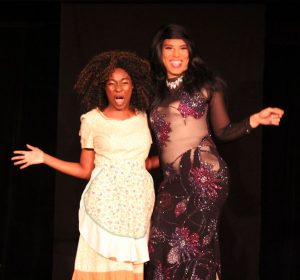 “Honestly, I do not peg myself as a singer. At least I kept telling myself I wasn’t a singer, but I was training as a singer and was also dancing – although I especially valued the acting.”
“Honestly, I do not peg myself as a singer. At least I kept telling myself I wasn’t a singer, but I was training as a singer and was also dancing – although I especially valued the acting.”
Although humble and self-deprecating, she was undoubtedly pretty darn good. Consider that she was cast in her first collegiate musical as Urinetown‘s Penelope Pennywise, the tough, jaded warden who lives to maintain order at the town’s public bathrooms.
“It was a good 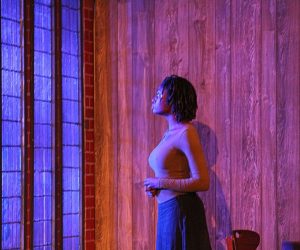 experience and a challenge,” Imani reminisces. “Oh, was it a challenge! The notes, she had such a range. But it was also her conviction. She was sassy, she believed, and she was a gatekeeper. I could get behind that. But I had to transfer her conviction into the music. Having that range, that command; that was such a good type of challenge for me.”
experience and a challenge,” Imani reminisces. “Oh, was it a challenge! The notes, she had such a range. But it was also her conviction. She was sassy, she believed, and she was a gatekeeper. I could get behind that. But I had to transfer her conviction into the music. Having that range, that command; that was such a good type of challenge for me.”
While YEA may have provided the air beneath Imani’s extended wings, 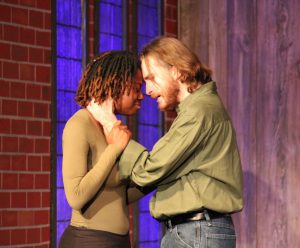 DeKalb Center for Performing Arts provided the grounding through a full complement of academic subjects as well as drama, dance, vocal and instrumental music, visual arts, video technology, creative writing, multimedia and design & production.
DeKalb Center for Performing Arts provided the grounding through a full complement of academic subjects as well as drama, dance, vocal and instrumental music, visual arts, video technology, creative writing, multimedia and design & production.
“It was a really small school. There were just two hallways, one on the top level and the other on the bottom. The top level was mostly academic classes and the 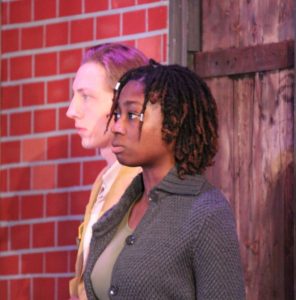 bottom level was for our art classes. I loved it there. The professors had masters and were performers themselves. The staff was incredibly dedicated, working to make sure that art is a fundamental part of students’ lives in an ongoing way.”
bottom level was for our art classes. I loved it there. The professors had masters and were performers themselves. The staff was incredibly dedicated, working to make sure that art is a fundamental part of students’ lives in an ongoing way.”
In other words, it was a small school with rigorous work ethic and an intensive arts-oriented environment.
Just like the FSU/Asolo Conservatory for Actor Training.
“Rigorous” and “intensive” 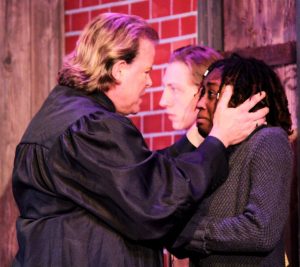 may actually be understatements where Asolo is concerned. Asolo expects its students to live, eat and breathe acting. The program expects students to be completely consumed with their craft. Like YEA, they expect the best and that’s what they get.
may actually be understatements where Asolo is concerned. Asolo expects its students to live, eat and breathe acting. The program expects students to be completely consumed with their craft. Like YEA, they expect the best and that’s what they get.
For the first year, Conservatory students go back to the basics, spending every day from 9:00 a.m. to 5:30 p.m. in the classroom studying all aspects of acting, vocal control, body control and movement, and textual analysis. 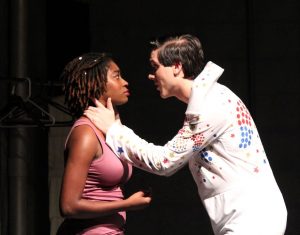 Outside the classroom, they’re expected to provide tech support for the second-year productions and prep as understudies for Asolo’s main stage. This means attending long rehearsals and memorizing complicated blocking and line delivery for performances they will likely never have a chance to give. But it’s not only about experience, but making lifelong connections in the performing arts industry.
Outside the classroom, they’re expected to provide tech support for the second-year productions and prep as understudies for Asolo’s main stage. This means attending long rehearsals and memorizing complicated blocking and line delivery for performances they will likely never have a chance to give. But it’s not only about experience, but making lifelong connections in the performing arts industry.
Second-year 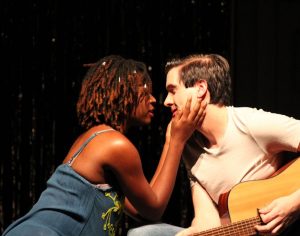 students continue classes, but also take part in a four-play season. Ranging from classical to contemporary, the productions are performed solely by second-year students on the Conservatory’s fabled Cook Stage. And when the season ends, the students fly to London for a six-week all-expenses-paid session of advanced training and immersion in the London theater scene.
students continue classes, but also take part in a four-play season. Ranging from classical to contemporary, the productions are performed solely by second-year students on the Conservatory’s fabled Cook Stage. And when the season ends, the students fly to London for a six-week all-expenses-paid session of advanced training and immersion in the London theater scene.
The first 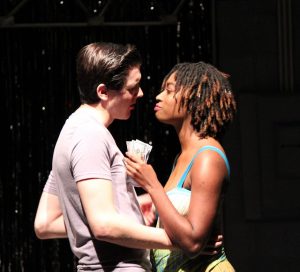 two months of Year 3 are dedicated to learning 50-minute Shakespearian adaptations designed to be staged in any setting. The students then take these productions on the road. Stopping in high schools and community centers throughout the state, the students will perform for as many as 14,000 people before they finish.
two months of Year 3 are dedicated to learning 50-minute Shakespearian adaptations designed to be staged in any setting. The students then take these productions on the road. Stopping in high schools and community centers throughout the state, the students will perform for as many as 14,000 people before they finish.
Their road tour ends just in time for the Asolo Rep season. Back home in the Ringling complex, the third-year students and newest members of the 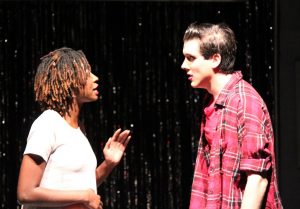 Asolo Repertory Theatre Company are put to work on two to four main stage productions – not as tech or crew, but as full-fledged performing artists.
Asolo Repertory Theatre Company are put to work on two to four main stage productions – not as tech or crew, but as full-fledged performing artists.
Given Asolo Rep’s worldwide reputation, that’s quite a coup.
Under the dynamic leadership of Producing Artistic Director Michael Donald Edwards and Managing 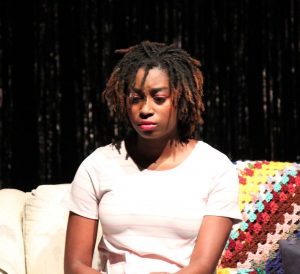 Director Linda DiGabriele, the Asolo Rep draws more than 100,000 patrons each year to its rotating repertory season. It’s the largest professional not-for-profit theatre south of Atlanta, and has served for years as a springboard for successful productions on their way to Broadway and regional theaters throughout the country. Not only is Asolo Rep the creative home of more than 100 artists, technical craftsmen, and dedicated administrative staff, the theater brings in dozens of
Director Linda DiGabriele, the Asolo Rep draws more than 100,000 patrons each year to its rotating repertory season. It’s the largest professional not-for-profit theatre south of Atlanta, and has served for years as a springboard for successful productions on their way to Broadway and regional theaters throughout the country. Not only is Asolo Rep the creative home of more than 100 artists, technical craftsmen, and dedicated administrative staff, the theater brings in dozens of 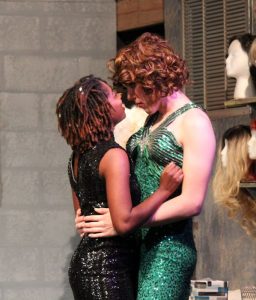 top-flight, award-winning directors, designers, and guest artists from around the country and around the world, thereby providing both its company and audiences with the broadest professional perspective and experience possible.
top-flight, award-winning directors, designers, and guest artists from around the country and around the world, thereby providing both its company and audiences with the broadest professional perspective and experience possible.
The Conservatory’s relationship with the Rep is a win for everyone, but especially its students. Normally, it wouldn’t be possible for non-Equity actors to perform at a venue like Asolo Rep. But by dint of an “ancient” Equity rule, the Asolo Rep is able to sidestep this impediment and draw from the third-year Conservatory students to fill casts, free of charge, 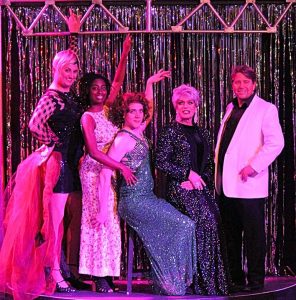 enabling the Rep to stage bigger productions than rivals of comparable size. As a result, Conservatory students not only become full members of the Asolo Rep’s mainstage acting company, they amass the 50 credits necessary for admission into the actor’s union.
enabling the Rep to stage bigger productions than rivals of comparable size. As a result, Conservatory students not only become full members of the Asolo Rep’s mainstage acting company, they amass the 50 credits necessary for admission into the actor’s union.
With their Actor’s Equity Association card, FSU/Asolo Conservatory graduates enter the ranks of this country’s most highly regarded professional artists. Asolo grads have appeared on and off Broadway, in regional theaters, in feature films and on television. 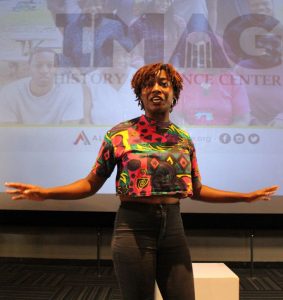 And to help them land roles in these and other storied venues, the program’s Director, Greg Leaming, works with his students to put together a showcase scenes that will serve as their résumé for casting directors (much like the reel that film actors assemble).
And to help them land roles in these and other storied venues, the program’s Director, Greg Leaming, works with his students to put together a showcase scenes that will serve as their résumé for casting directors (much like the reel that film actors assemble).
The showcase gives Conservatory grads a decided advantage, especially in a post-COVID-19 world, where more and more casting directors will be looking for means to avoid or shorten long lines of actors showing up in person to audition for roles.
“Part of my 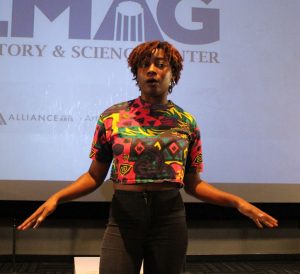 decision making process for doing graduate studies was the showcase, which is very important for your professional career,” Imani notes. “It will enable me to say, ‘Ta da! I’ve got this backing, I’ve got this training.” That’s very exciting.”
decision making process for doing graduate studies was the showcase, which is very important for your professional career,” Imani notes. “It will enable me to say, ‘Ta da! I’ve got this backing, I’ve got this training.” That’s very exciting.”
With a program as intensive as it comprehensive, Imani will have little time for family and friends, never mind outside interests like part-time employment. But the Conservatory does its part to alleviate the 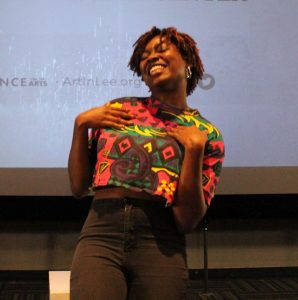 financial burden associated with three years of such tutelage and training by waiving tuition and providing an annual stipend that helps cover housing, meals and other sundries.
financial burden associated with three years of such tutelage and training by waiving tuition and providing an annual stipend that helps cover housing, meals and other sundries.
Williams says she already enjoys a strong sense of belonging.
In fact, its a feeling that swept over her the moment she completed her audition in New York this past December, as strange as that may seem.
Even well-established veterans of stage and film cop 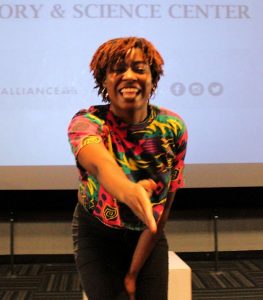 to a good case of jitters before and during auditions. But in the case of the Conservatory, the numbers are particularly daunting. Leaming and his team audition between 1,200 and 1,500 candidates each year for the 12 slots allocated to the incoming class. Auditions are held in New York, Chicago and San Francisco. Imani’s audition was in New York, which can be imposing in its own right for a girl raised in Stone Mountain, Georgia.
to a good case of jitters before and during auditions. But in the case of the Conservatory, the numbers are particularly daunting. Leaming and his team audition between 1,200 and 1,500 candidates each year for the 12 slots allocated to the incoming class. Auditions are held in New York, Chicago and San Francisco. Imani’s audition was in New York, which can be imposing in its own right for a girl raised in Stone Mountain, Georgia.
The influx of so many candidates is promoted and arranged through a recruiting event known as URTA, which gives MFA candidates the opportunity to meet with faculty recruiters from 43 member 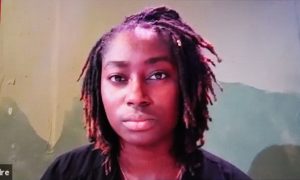 universities and other top theater programs like the Conservatory in one place.
universities and other top theater programs like the Conservatory in one place.
While she was in town for the Asolo audition, Imani auditioned for the MFA program at FSU as well. It was only right given that the Baby Seminole had spent her sophomore and part of her junior 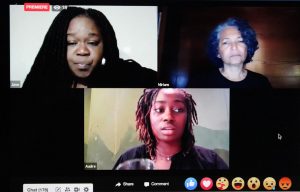 year at Florida State University before completing her studies at FGCU.
year at Florida State University before completing her studies at FGCU.
“You have four minutes to audition for a representative [of the school]. That was a little nerve-wracking simply because there are a lot of students there and it’s over several days. You want to fit two monologues into the four-minute audition. I went in 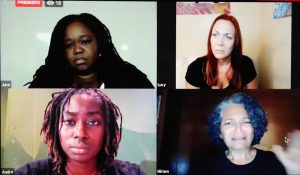 there with the motivation of not just getting it done, but having fun with it.”
there with the motivation of not just getting it done, but having fun with it.”
Obviously, she rocked her audition with Conservatory Director Greg Leaming, who admits to uncompromisingly high standards. In addition to skill and dramatic imagination, Leaming values commitment above all else.
“I 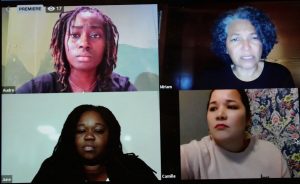 felt good afterwards,” Imani says. “I felt like I belonged. I do now and I did then.”
felt good afterwards,” Imani says. “I felt like I belonged. I do now and I did then.”
As with YEA and DeKalb, Williams’ new home at the FSU/Asolo Conservatory is not just a gateway to her chosen profession. It’s a fulcrum of orientation that will reinforce and expand the lessons she’s already learned about cultural awareness, 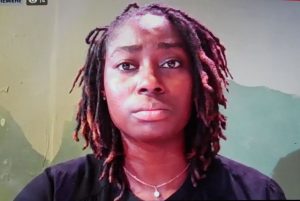 commitment to excellence, community service and an appreciation for diversity.
commitment to excellence, community service and an appreciation for diversity.
“We are training the future of American culture,” Leaming told SRQ Magazine’s Phil Lederer in July of 2014. “The students who graduate from here are responsible, when they enter the profession, to be the voice of American culture. The arts speak to the 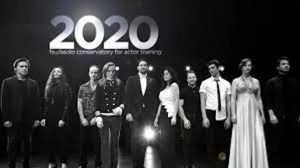 community and in doing so help the country identify itself. The arts are a mirror for the community to say, ‘That’s what I believe.’”
community and in doing so help the country identify itself. The arts are a mirror for the community to say, ‘That’s what I believe.’”
And like many communities across our troubled country, the Conservatory is grappling with the dual concerns of fighting oppression, racism and hate 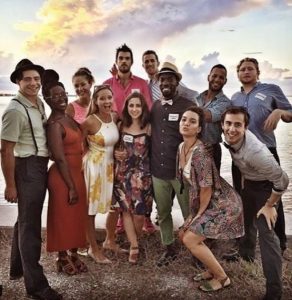 on the one hand and operating in the best interests of its black students on the other. Noting that none of the 91 plays produced by the Conservatory since its 1999-2000 season were written by black playwrights and only one African-American director has been employed by the program in the past 20 years, five of the Conservatory’s current students sent a “Call to Action” letter to the Conservatory, FSU and Asolo Rep calling for them to do more in both respects.
on the one hand and operating in the best interests of its black students on the other. Noting that none of the 91 plays produced by the Conservatory since its 1999-2000 season were written by black playwrights and only one African-American director has been employed by the program in the past 20 years, five of the Conservatory’s current students sent a “Call to Action” letter to the Conservatory, FSU and Asolo Rep calling for them to do more in both respects.
“I acknowledge and commend the bravery of Nydira Adams, Daniel 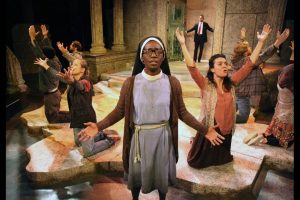 Ajak, Ptah Garvin, Naire Poole and Bonita Jackson and their sense of duty to the craft and the betterment of Asolo,” Imani volunteers, reflecting the social consciousness and civic activism that YEA and DeKalb instilled in her during her formative years.
Ajak, Ptah Garvin, Naire Poole and Bonita Jackson and their sense of duty to the craft and the betterment of Asolo,” Imani volunteers, reflecting the social consciousness and civic activism that YEA and DeKalb instilled in her during her formative years.
Actors customarily speak through the stories they tell on 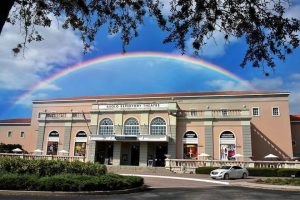 stage and in film. For Imani, it’s always been about the stories anyway.
stage and in film. For Imani, it’s always been about the stories anyway.
“But both drama and comedy carry a message. So that mix, that in between, is where I see myself. It’s all about the story and what I find between the lines of that story – and what we collaborate on as a cast in telling that story. That’s where the most work and focus needs to be.”
But at 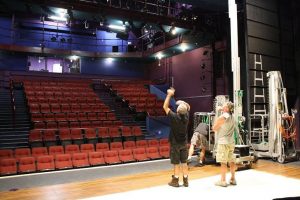 present, Imani’s focus is somewhat narrower – preparing for the challenge of navigating the deep and fast-flowing waters of the FSU/Asolo program.
present, Imani’s focus is somewhat narrower – preparing for the challenge of navigating the deep and fast-flowing waters of the FSU/Asolo program.
“Staying vulnerable and accepting criticism that will take me to the next level keeps my fear of the unknown in check,” Imani humbly proclaims.
She’s looking 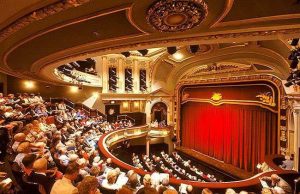 forward to meeting her fellow students and the Conservatory’s devoted faculty and staff. She’s looking forward to improving her craft by leaps and bounds in the immediate future and over the course of the 3-year MFA program. And she’s looking forward to appearing in Conservatory and Asolo Rep productions, both here and in London.
forward to meeting her fellow students and the Conservatory’s devoted faculty and staff. She’s looking forward to improving her craft by leaps and bounds in the immediate future and over the course of the 3-year MFA program. And she’s looking forward to appearing in Conservatory and Asolo Rep productions, both here and in London.
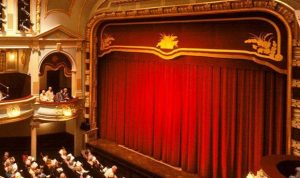 After all, Imani Lee Williams loves a good challenge. But the FSU/Asolo Conservatory for Actor Training isn’t the end-all of challenges. Rather, it’s a portal into a calling filled with bigger, better and badder challenges – and responding in proportion.
After all, Imani Lee Williams loves a good challenge. But the FSU/Asolo Conservatory for Actor Training isn’t the end-all of challenges. Rather, it’s a portal into a calling filled with bigger, better and badder challenges – and responding in proportion.
June 29, 2020.














 Tom Hall is both an amateur artist and aspiring novelist who writes art quest thrillers. He is in the final stages of completing his debut novel titled "Art Detective," a story that fictionalizes the discovery of the fabled billion-dollar Impressionist collection of Parisian art dealer Josse Bernheim-Jeune, thought by many to have perished during World War II when the collection's hiding place, Castle de Rastignac in southern France, was destroyed by the Wehrmacht in reprisal for attacks made by members of the Resistance operating in the area. A former tax attorney, Tom holds a bachelor's degree as well as both a juris doctorate and masters of laws in taxation from the University of Florida. Tom lives in Estero, Florida with his fiancee, Connie, and their four cats.
Tom Hall is both an amateur artist and aspiring novelist who writes art quest thrillers. He is in the final stages of completing his debut novel titled "Art Detective," a story that fictionalizes the discovery of the fabled billion-dollar Impressionist collection of Parisian art dealer Josse Bernheim-Jeune, thought by many to have perished during World War II when the collection's hiding place, Castle de Rastignac in southern France, was destroyed by the Wehrmacht in reprisal for attacks made by members of the Resistance operating in the area. A former tax attorney, Tom holds a bachelor's degree as well as both a juris doctorate and masters of laws in taxation from the University of Florida. Tom lives in Estero, Florida with his fiancee, Connie, and their four cats.